2011 Toyota Tundra Tires, Repair & Service
Get Started
Complete Auto Care for Your 2011 Toyota Tundra
-
TIRES FOR YOUR 2011 Toyota Tundra View Tire Info GET TIRE PRICING
-
REPAIR FOR YOUR 2011 Toyota Tundra View Repair Info SCHEDULE REPAIR
-
MAINTENANCE FOR YOUR 2011 Toyota Tundra View Maintenance Info SCHEDULE MAINTENANCE
-
OFFERS FOR YOUR 2011 Toyota Tundra Limited Time Tire Offers VIEW ALL COUPONS
2011 Toyota Tundra Tires
Recommended Tires | Tire Information
2011 Toyota Tundra Tires Sizes, Speed Ratings, and Inflation
Not sure about your 2011 Toyota Tundra tire size? Use the following chart to find information on tire size, speed rating, and inflation.
| Trim Level | Speed Rating | Inflation in PSI F/R | Tire Size |
|---|---|---|---|
| 2011 Toyota Tundra Base* | T | 30 PSI/33 PSI | P275/65R18 |
| 2011 Toyota Tundra Base* | R | 50 PSI/50 PSI | LT285/70R17/D |
| 2011 Toyota Tundra Base* | H | 30 PSI/33 PSI | P275/55R20 |
| 2011 Toyota Tundra Base* | T | 30 PSI/33 PSI | P255/70R18 |
| 2011 Toyota Tundra Limited* | T | 30 PSI/33 PSI | P275/65R18 |
| 2011 Toyota Tundra Limited* | H | 30 PSI/33 PSI | P275/55R20 |
|
2011 Toyota Tundra Base* Speed Rating: T Inflation F/R: 30 PSI/33 PSI |
|
2011 Toyota Tundra Base* Speed Rating: R Inflation F/R: 50 PSI/50 PSI |
|
2011 Toyota Tundra Base* Speed Rating: H Inflation F/R: 30 PSI/33 PSI |
|
2011 Toyota Tundra Base* Speed Rating: T Inflation F/R: 30 PSI/33 PSI |
|
2011 Toyota Tundra Limited* Speed Rating: T Inflation F/R: 30 PSI/33 PSI |
|
2011 Toyota Tundra Limited* Speed Rating: H Inflation F/R: 30 PSI/33 PSI |
* Note: these models have different tire sizes depending on vehicle options.
Recommended Tires for Your 2011 Toyota Tundra
What tires are best for a 2011 Toyota Tundra? Check out the following tire brands and types.
 Blizzak DM-V2
Blizzak DM-V2
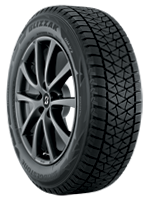
- No warranty
- Winter
- Winter
 ALENZA AS ULTRA
ALENZA AS ULTRA
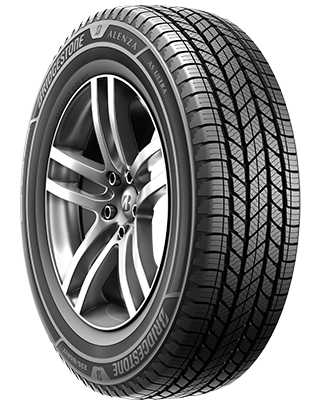
- No warranty
- All-Season
- Light Truck Tires
 DriveGuard Plus
DriveGuard Plus
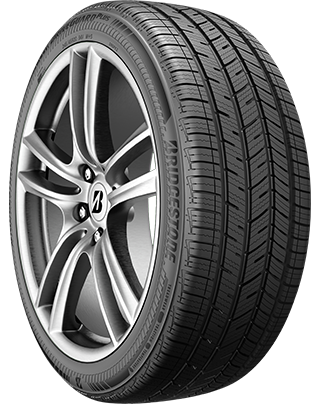
- Platinum Pact Limited Warranty
- All-Season
- Performance
 Dueler H/L Alenza
Dueler H/L Alenza
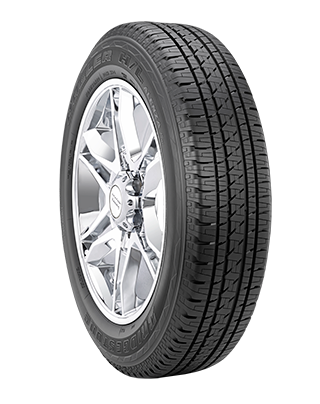
- Platinum Pact Limited Warranty
- All-Season
- Light Truck Tires
 Dueler H/L Alenza Plus
Dueler H/L Alenza Plus
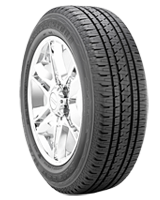
- Platinum Pact Limited Warranty
- All-Season
- Light Truck Tires
 Dueler A/T Revo 3
Dueler A/T Revo 3
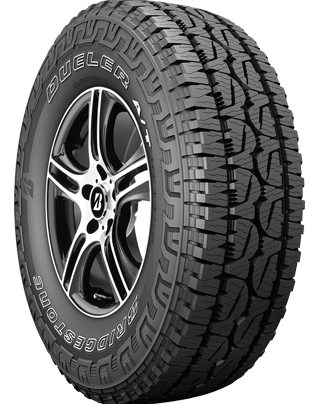
- Platinum Pact Limited Warranty
- All-Season
- Light Truck Tires
 Dueler A/T RH-S
Dueler A/T RH-S
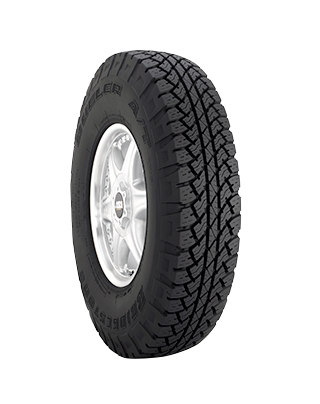
- Platinum Pact Limited Warranty
- All-Season
- Light Truck Tires
 Dueler H/T 684 II
Dueler H/T 684 II
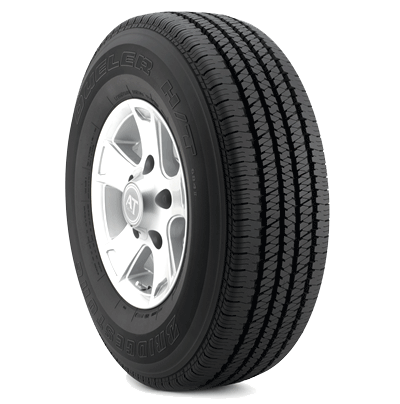
- Platinum Pact Limited Warranty
- All-Season
- Light Truck Tires
 Dueler H/T 685
Dueler H/T 685
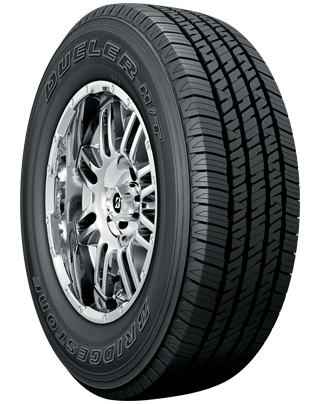
- No warranty
- All-Season
- Light Truck Tires
 WEATHERPEAK
WEATHERPEAK
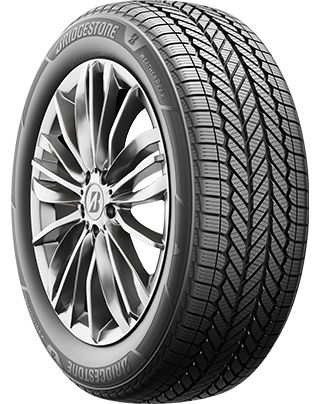
- Platinum Pact Limited Warranty
- All-Season
- Passenger Tires
 Dueler A/T Revo 3 - LT
Dueler A/T Revo 3 - LT
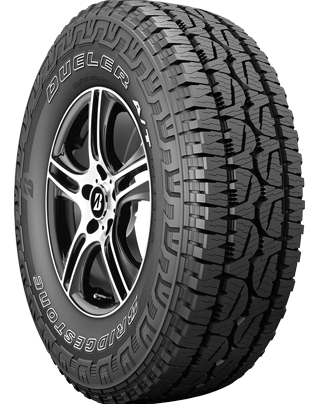
- Platinum Pact Limited Warranty
- All-Season
- Light Truck Tires
 Destination LE3
Destination LE3
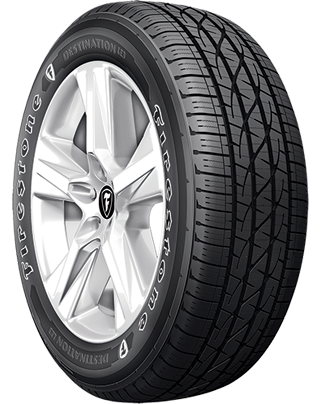
- No warranty
- All-Season
- Light Truck Tires
 Destination A/T2
Destination A/T2
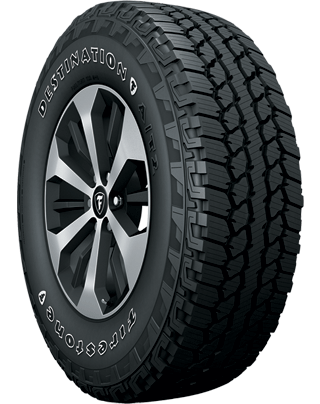
- Gold Pledge Limited Warranty
- All-Season
- Light Truck Tires
 Transforce HT2
Transforce HT2
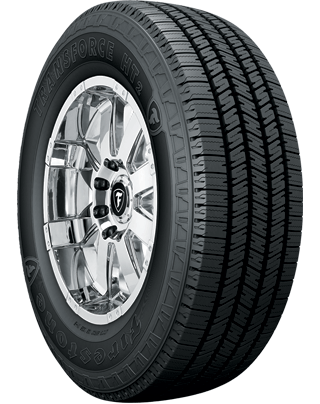
- Gold Pledge Limited Warranty
- All-Season
- Light Truck Tires
 Transforce AT2
Transforce AT2
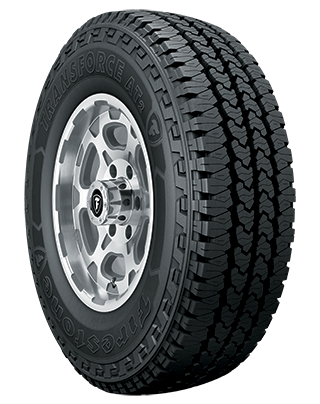
- No warranty
- All-Season
- Light Truck Tires
 Destination X/T
Destination X/T
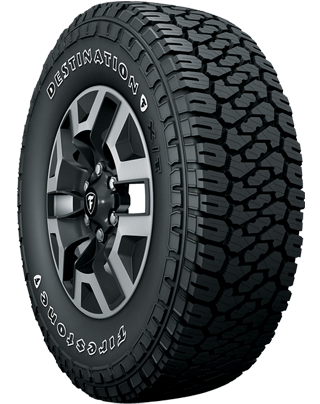
- Gold Pledge Limited Warranty
- All-Season
- Light Truck Tires
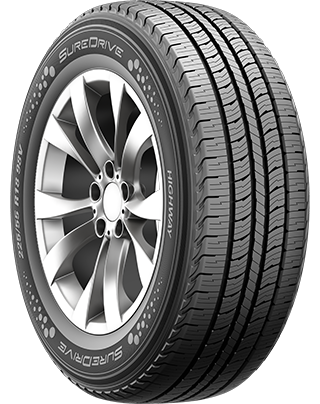
- No warranty
- All-Season
- Light Truck Tires
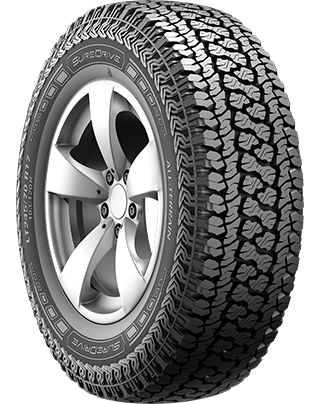
- No warranty
- All-Season
- Light Truck Tires
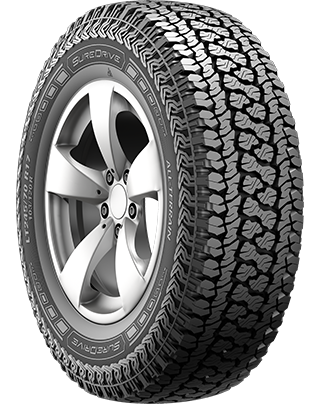
- No warranty
- All-Season
- Light Truck Tires
 PROXES ST III
PROXES ST III
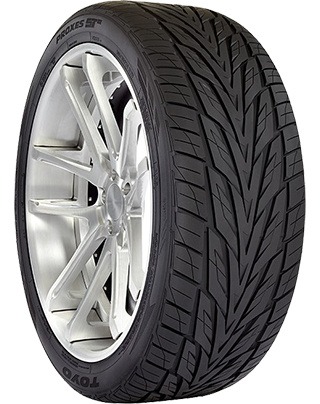
- No warranty
- All-Season
- Light Truck Tires
 OPEN COUNTRY R/T
OPEN COUNTRY R/T
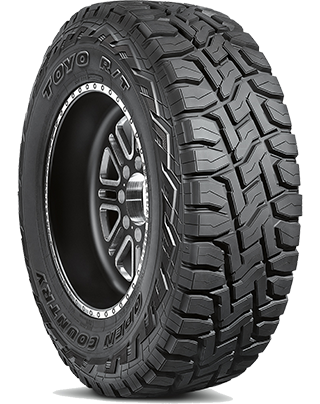
- No warranty
- All-Season
- Light Truck Tires
2011 Toyota Tundra Tire Information
Apart from finding the right tire size, you also want to consider a handful of other factors when buying new Toyota Tundra tires like how and where you drive, and how much you want to spend. Think about where you live (countryside vs. city vs. mountains) and the kind of unexpected weather you're likely to experience when evaluating your driving conditions. It's not uncommon for drivers in states that experience all four seasons to buy more than one set of tires. one for winter and one for summer. Other drivers prefer to purchase one all-season set to limit trips to the tire shop and make sure their vehicle is prepared in the rain, sleet, snow, or sun!
Your personal driving style is the next factor to consider. If you're an avid off-roader who yearns to pioneer new paths, you have very different tire needs than a highway commuter who doesn't hit the hills very often. Talk to a tire technician at Firestone Complete Auto Care for help choosing the best tire for you, or start shopping for Toyota Tundra tires online.
Installing Toyota Tundra Tires
We sell tires, but we also service them and care for all the around-the-wheel components. We're your tire shop and a complete service center for tire installation, maintenance, repair, rotation, and alignment! Buy 2011 Toyota Tundra tires online and schedule your installation when it's convenient for you.
2011 Toyota Tundra Tire Q&A
-
Is Toyota tire inflation important? A small decrease in tire pressure can have a big impact on your driving. Maintaining proper tire pressure can help improve braking time, increase fuel economy, and boost tire lifespan.
-
Why are there numbers on the side of my Toyota Tundra tires? The numbers on your tire sidewall give you information about tire speed rating, traction, treadwear, tire size, and load carrying capacity. Chat with a tire technician to learn how to read the numbers on your Toyota tires!
-
Can I check the tread depth on my Toyota tires at home? Stay on top of your tire tread depth to help avoid a dangerous drive. You can check tread depth with a penny. Hold the penny so that Abraham Lincoln is facing you, then place your penny into a tread groove upside down. If you can see the top of Abe’s head, your tread is shallow and it might be time for new Toyota Tundra tires. Grab a penny. Hold the so that Abe Lincon's head is facing you and his hair is pointing toward the ground. Then, place the penny into a tread groove. If you can see the top of Abe’s head, your tread is shallow and it might be time for new Toyota Tundra tires.
Repair Services for Your 2011 Toyota Tundra
How do I learn more about auto repairs? Click on a service below to read about the types of Toyota Tundra repairs we do at Firestone Complete Auto Care.
About 2011 Toyota Tundra Repairs
For most drivers, the words “car repair” don’t exactly spark excitement. But we work to provide you with a different experience at Firestone Complete Auto Care. Bring your 2011 Toyota Tundra in for repair services and our skilled repair technicians will get your Tundra back on the road. We’ll start by assessing what repairs may be needed, and we’ll provide you with a detailed explanation of what we recommend. If a repair isn't necessary, we won't recommend it.
How Much Are Toyota Tundra Repairs?
The cost to repair your 2011 Toyota Tundra depends on which repairs are needed, costs of replacement parts or repair supplies, the labor involved, and where you live. And check back often — we update our deals regularly!
A few different aspects can influence repair costs for your 2011 Toyota Tundra, like
2011 Toyota Tundra Auto Repair Questions
-
Do I still need scheduled maintenance even when nothing is wrong with my Toyota? The cheapest 2011 Toyota Tundra repair is the one that isn’t necessary in the first place! Staying up-to-date with your car’s scheduled maintenance services is a great way to keep future repair costs low.
-
What's wrong if something feels 'off' in my Toyota? No, we’re not talking about finding the best jams on the radio! You know your car best, and you’re the first person who will notice if something doesn’t feel right (like new smells, sights, or sounds coming from your car). If you sense that something is 'off,' stop in for a Courtesy Check to have these symptoms checked out ASAP. Early action could help you prevent Toyota Tundra repairs.
-
Are the repairs you recommend for my Toyota actually needed? Trust is more than just a saying on the wall. It’s a window underneath it. That’s why we won’t recommend services or repairs for your 2011 Toyota Tundra unless we think they’re vital to your safety on the road.
Brake Repair for Your 2011 Toyota Tundra
You might have a strong and reliable engine in your Toyota Tundra. But if you can’t brake, it might as well be scrap metal. If you’re experiencing squeaky brakes or a loss of braking power, don’t wait! Safe driving and responsive brakes go hand in hand. Plus, ignoring your brake problems can result in more damage and higher brake repair bills. Visit Firestone Complete Auto Care for the right brake repair for your 2011 Toyota Tundra. We offer many affordable brake repairs like brake pad/shoe removal and replacement, brake rotor/drum machining, brake fluid exchange/bleeding, and brake caliper and wheel cylinder service.
Answers to Your Tundra Brakes Questions
-
What can cause my Tundra to shake when I apply the brakes? Feeling shaking or vibrating in your Tundra as you brake might indicate a few different problems, including worn brake pads or rotors, loose suspension components, damaged brake calipers, or warped rotors. Book an appointment for a free brake inspection as soon as you notice a problem with your brakes.
-
How long can I expect my Tundra brake pads to last? You can usually get around 30,000 to 40,000 miles out of your brake pads, but how and where you drive your Tundra can affect this. Hauling large loads or riding your brakes can shorten their lifespan, while smoothly braking and mostly sticking to highways can help your brake pads last longer.
-
Is it bad if my Tundra is leaking brake fluid when off? Your Tundra brake system is a closed hydraulic system, which means that the brake fluid should not leak out of the system under normal circumstances. However, over time, the various components of the brake system can wear out or become damaged, which can cause brake fluid to leak out of the system.
Repairing Your Toyota Tundra Drivetrain
Drivetrains for front, rear, and all-wheel-drive and 4WD vehicles are quite different, so you don't want to go to just anyone for drivetrain repair. You want to go to Firestone Complete Auto Care. We can help repair all of your 2011 Toyota Tundra drivetrain components Your Toyota Tundra may need driveshaft attention if you feel vibration as your vehicle accelerates, clunks when shifting, heavy vibrations in your floorboards, or resistance when turning.
2011 Toyota Tundra Drivetrain Q&A
-
How do I know if my Toyota drivetrain is damaged? Your Toyota Tundra drivetrain might be damaged if you notice strange noises from the rear of your vehicle, see fluid leaking, or have issues turning.
-
Why is my Tundra malfunction indicator light (MIL) on? The malfunction indicator light — also known as the check engine light — on your Tundra can illuminate for a variety of reasons, including engine issues, electrical problems, damaged sensors, transmission problems, misfires, and faulty connections.
-
Is a drivetrain malfunction in my Tundra serious? A drivetrain malfunction in your Tundra should never be taken lightly. Driving with a malfunctioning drivetrain can put you in danger and lead to further vehicle damage, so it's essential to have a qualified mechanic assess and repair the problem as soon as possible.
2011 Toyota Tundra Wheel Alignment
Alignment services involve precise adjustments to your Toyota Tundra’s suspension system, which serves to attach your wheels to your vehicle. During the service, your tire angles are adjusted according to measurements recommended by Toyota. Why? So that your tires can make contact with the road at the best possible angle. Before we adjust the alignment of your 2011 Toyota Tundra, we’ll start by checking the current alignment angles. If needed, we'll adjust your wheel alignment angles to match Toyota recommendations.
Toyota Tundra Alignment Questions
-
How can I avoid knocking my Toyota Tundra out of alignment? Potholes and uneven roads can knock your car out of alignment, so stay aware of the road ahead and adjust your speed (or avoid these obstacles whenever it’s safely possible).
-
How often should you get a wheel alignment for your Tundra? Check your Tundra owner's manual for Toyota's recommended interval. It's generally a good idea to check your alignment every 6,000 miles or 6 months, depending on which comes first.
-
Do you need to get your Tundra wheels aligned? While you don’t necessarily need to get an alignment when putting new tires on your Tundra, it’s still a good idea. Ensuring your wheels are properly aligned can help support optimal handling, tire wear, and fuel efficiency.
Engine Repairs for Your 2011 Toyota Tundra
If your 2011 Tundra engine needs repairs, our technicians will provide you with a thorough explanation beforehand. We never do any work without your sign-off. If a service can wait, we’ll make sure you know. We'll also tell you if it's necessary for your safety. We want to provide you with the information you need to make an informed engine repair decision. By choosing Firestone Complete Auto Care for Tundra engine repairs and you can drive easy knowing that we use Toyota-approved parts and fluids — serpentine belt, engine oil seal, fuses, or another part.
2011 Toyota Tundra Engine Q&A
-
Why does my Tundra’s check engine light come on when I start it? It’s usually normal for your check engine light to turn on upon ignition. This is just your Tundra testing its circuits. The dash light shouldn't stay on. If it does, you might want to bring your vehicle in for service.
-
Are Toyota Tundra engine noises bad? Unusual noises can signal a problem with your Toyota Tundra engine. Tapping or knocking could mean you're low on oil. Whistling could mean a belt is misaligned or there's an intake leak. Squealing can indicate a loose fan belt, and grinding might be coming from the brakes, not the engine.
-
What could damage a Toyota engine? Certain driving habits can damage your engine and should be avoided. These habits include 'running on fumes,' revving the engine while still in Park, or pushing 'the pedal to the metal' before the engine has warmed up. Help sustain your engine’s performance and efficiency by staying miles away from these bad driving practices.
Get Your Toyota Tundra Tire Repaired
If the road has been rough on your 2011 Toyota Tundra tires, Firestone Complete Auto Care can help. There’s a chance your tire could be plugged and patched (rather than replaced). Our technicians can inspect your tire and let you know if it is safe to repair. We’ll begin by taking a look at where the damage is, the type and extent of the tire damage, and how all of your tires are wearing.
If a repair on your 2011 Toyota Tundra tire is feasible and safe, we'll follow three basic steps to repair it: (1) Take the tire off the wheel for easy inspection, (2) use a filler to close up the puncture (this is to keep moisture from getting in), and (3) secure and seal the inner tire liner to ensure the tire is airtight.
Frequently Asked Toyota Tundra Tire Repair Questions
-
Can I drive my Toyota on a flat tire? Driving on a flat tire is not a good idea. Your Tundra engine will keep running with a flat tire, but you could damage your wheel by continuing to drive on a flat.
-
Can I use an emergency/temporary sealant to fix my Toyota's flat tire? A temporary sealant may be able to help you get to a repair location safely. But temporary or emergency sealants could possibly damage TPMS sensors, and in some cases may even void the warranty on your Bridgestone or Firestone tires. If your tire needs extensive repair, sealant can add time and labor costs to the process.
-
What is causing the tires on my Tundra to keep losing air? Tire punctures, damaged wheels, and leaking valve stems are possible reasons for your Tundra tires continuously losing air.
2011 Toyota Tundra Maintenance
Take care of your Toyota Tundra and it'll take care of you. With the right maintenance at the right time, your Tundra has a good chance of hitting 200,000 miles or more.
2011 Toyota Tundra Maintenance Schedule
What is the manufacturer recommended maintenance schedule for a 2011 Toyota Tundra? Find maintenance info for your vehicle.
Guide to 2011 Toyota Tundra Scheduled Maintenance
Instead of waiting for an issue to arise with your Tundra, you can stay ahead of problems before they even begin. It’s as easy as following the recommended maintenance schedule that’s been written specifically for your 2011 Toyota Tundra! The recommended maintenance schedule is put together by Toyota, your vehicle manufacturer. Driving conditions, climate variations, and other variables can affect which scheduled maintenance services you’ll need; however, recommended maintenance usually includes services like oil changes, tire rotations, brake pad replacement, filter changes, and fluid checks and exchanges. Staying on track with routine service appointments can help your Tundra perform better, keep you safer on the road, and prevent common 2011 Toyota Tundra problems.
Essential Maintenance to Keep Your 2011 Toyota Tundra Running Newer, Longer
Bring your 2011 Toyota Tundra to Firestone Complete Auto Care for factory-recommended maintenance services and our technicians will jump right in with a Courtesy Check. A Courtesy Check helps "set the stage" for your service and catch any small problems before they turn into big repairs. During a Courtesy Check, we’ll always check your battery, then we’ll move on to inspect your Tundra’s head and tail lights, tires, fluid levels, alignment, and windshield wipers.
Firestone Complete Auto Care is your one-stop shop for 2011 Toyota Tundra maintenance and repairs. So visit us regularly, or visit us urgently. Many locations are open on weekends and in the evening.
2011 Toyota Tundra Maintenance Q&A
-
What should I do after hitting a pothole in my Toyota Tundra? Watch out for pothole damage. If your 2011 Tundra is pulling to one side or the other, your tires or suspension system could be calling out for help.
-
When should I use high mileage oil in my Toyota Tundra? Do you have more than 75,000 miles on your Toyota Tundra? If so, request to switch to high mileage oil at your next oil change. This type of oil is specially formulated to keep aging engine parts in the best possible condition.
-
Can I ignore dashboard lights on my Toyota? It's better to get them addressed as soon as possible. An illuminated dashboard light means something in your vehicle isn't functioning like it should. Letting problems linger can mean bad news for your Toyota Tundra, so be sure to take your car in for service as soon as you notice an illuminated dashboard light.
Battery Size & Replacement for 2011 Toyota Tundra
Need more info about Toyota Tundra batteries?
| Battery | Engine | Warranty | Cold Cranking Amps | |
|---|---|---|---|---|
| 27F-3 | V8/5.7L | Replacement 24 months | Performance months | 710 |
| 24F-6 | V8/5.7L | Replacement 36 months | Performance months | 750 |
| 24F-RP | V8/5.7L | Replacement 48 months | Performance months | 750 |
| 27F-3 | V8/4.6L | Replacement 24 months | Performance months | 710 |
| 24F-6 | V8/4.6L | Replacement 36 months | Performance months | 750 |
| 24F-RP | V8/4.6L | Replacement 48 months | Performance months | 750 |
| 24F-3 | V6/4.0L | Replacement 24 months | Performance months | 650 |
| 35-2 | V6/4.0L | Replacement 36 months | Performance months | 640 |
| 24F-RP | V6/4.0L | Replacement 48 months | Performance months | 750 |
Car Batteries for 2011 Toyota Tundra
On average, auto batteries last anywhere from three to five years. Check your battery regularly and replace it as needed so it doesn’t leave you and your Toyota Tundra stranded. Watch for signs that your current battery is getting too old or too weak. A slow engine crank, an illuminated battery or check engine light, swollen battery case, corrosion-covered posts, or weak lights can all signal that your battery is on its last leg.
You can also get a Free Battery Test at your local Firestone Complete Auto Care. Drop in for a free battery check and, if needed, a replacement battery for your 2011 Toyota Tundra. Car batteries are one of our many specialties! Our technicians are well-acquainted with Toyota’s service specs for Tundra battery CCAs and reserve capacity. Get help identifying the type and size of battery that matches your vehicle, and schedule a weekday or weekend battery replacement service for your car.
Top Toyota TundraCar Battery Questions
-
Why doesn’t my Toyota Tundra battery stay charged? A battery is in its final hour when it will no longer hold a charge. The battery may be too old. Or, you may have been leaving your car doors ajar and the cabin light at night. Stop by for a complimentary battery check at your favorite Firestone Complete Auto Care and get a handle on your car battery’s health.
-
How long do car batteries last? Car battery lifespan varies depending on a few factors, including driving conditions, accessories, how well it’s maintained, and the type of battery. On average, a car battery lasts about three to five years.
-
Why is there white, flaky stuff around my Tundra’s battery post? If you notice white, crusty stuff around the battery terminals of your Tundra, it's likely corrosion. A chemical reaction between battery acid and the air can create a white, powdery substance that builds up over time on the terminals. This buildup can interfere with the electrical connection between the battery and your Tundra’s electrical system, potentially leading to poor performance, difficulty starting, and other issues.
2011 Toyota Tundra Oil Changes
Your 2011 Tundra’s oil should be changed according to Toyota’s recommended oil change intervals. No matter the mileage, your Tundra may need its oil changed ASAP if your check engine light is on, you hear knocking sounds coming from the engine, sense an oil smell in the cabin, or notice excess vehicle exhaust. You might need an oil change more frequently than what’s recommended by Toyota if you regularly haul heavy loads, drive in dusty areas, go off-roading a lot, or drive at low speeds for long distances.
Whether it’s synthetic, conventional, or a blend of both — your local Firestone Complete Auto Care has the right oil for your Toyota Tundra. Consult Toyota's recommendations to select the right 2011 Tundra oil and talk with a teammate to learn more about our oil options: Quaker State® Advanced Durability™ conventional oil, Pennzoil® High Mileage Vehicle® motor oil, Pennzoil Platinum® Full Synthetic motor oil with PurePlus™ Technology, and Shell Rotella® heavy-duty engine oil. During an oil change, one of our techs will change your Tundra’s oil, replace and recycle your used oil and oil filter, check all of your other filters, top-off essential fluids, and visually inspect the rest of the vehicle. Get professional engine care by making an oil change appointment for your Tundra today.
2011 Toyota Tundra Oil Change Q&A
-
Why is my Toyota Tundra oil light illuminated? The oil change light in your Toyota Tundra could be triggered by an overdue oil change. However, if the oil pressure light is on, you may be dealing with low engine oil, a failing oil pump, a clogged oil filter, or a malfunctioning oil pressure sensor.
-
How hard is it to change Toyota Tundra oil at home? Changing engine oil at home isn’t as simple as it’s made out to be. You’ll have to figure out how to properly dispose of the oil and buy special tools. Having your oil changed professionally can not only reduce the risk of something going wrong during the service, but it’ll also help your car perform smoothly down the road.
-
Why is my Toyota Tundra exhaust smoke grayish or blue? You could have an oil leak and have a case of burning oil. Looks like it’s time for a professional to take a look. The leak could be the result of worn valve seals, fried piston rings, or old cylinder walls.
2011 Toyota Tundra Tune-Up & Engine Service
Routine engine tune-ups can bring power back to your Tundra. Your local Firestone Complete Auto Care offers a range of engine tune-up services for your 2011 Toyota Tundra. The standard Firestone Tune-Up is one service option. It includes a complete visual inspection of engine components, installation of new spark plugs, and a lifetime warranty on parts*. Another service option pays special attention to the filters in your Tundra. Specifically, we replace the fuel filter and air filter. Yet another service is a fuel system cleaning process, which involves removing varnish, dirt, and carbon deposits that have built up inside the fuel injectors, throttle body, and throttle plate in your Tundra. This can improve your fuel system’s performance (and therefore, your engine’s performance). Here’s something to remember when choosing services: the mileage and service history of your Tundra can determine what kind of service it needs. Talk to a technician about your driving style, mileage, and service history to learn more about your vehicle's specific needs.
*Check with a teammate at Firestone Complete Auto Care for complete terms and conditions regarding warranties.
2011 Toyota Tundra Engine Tune-Up Q&A
-
When should Toyota Tundra spark plugs be replaced? When it’s time to replace the spark plugs, don’t delay. These small (but vital!) parts provide the electric spark that your car needs in order to start, and old spark plugs can prevent your car from starting at all. Replace spark plugs on time or about every 30,000 miles or so.
-
What should I do if I see leaks under my Tundra? Puddles could indicate an oil leak, coolant leak, or brake fluid leak– all of which can critically hurt your engine. Have your engine inspected as soon as you spot a pool of liquid in your usual parking spot.
-
How frequently do the fuel injectors in my Toyota Tundra need to be cleaned? There is no hard and fast rule on how often fuel injectors should be cleaned, and it can vary based on driving habits and fuel type. Some manufacturers may suggest including a fuel system cleaning in your regular maintenance schedule. Or you may need to clean your fuel injectors as needed if you notice signs of a fuel system problem.
2011 Tundra Toyota Steering & Suspension Services
When you first bought your 2011 Toyota Tundra, you and your passengers probably enjoyed a ride that was smooth and balanced. Now, however, things are starting to feel a little rough. Perhaps your Tundra feels bouncy, sways to one side, or makes noise whenever you turn or drive over a speed bump. The first sign of problems is a good time to bring your 2011 Toyota Tundra in for steering and suspension services. We'll get to the root of the problem and, if your Tundra suspension system needs repair, we'll explain all of your options and the potential cost.
Questions About 2011 Toyota Tundra Steering & Suspension
-
What can cause my Toyota Tundra to have a bouncy ride? If your shocks or struts are in bad shape, they can’t dampen road bumps like they should. This can cause your Tundra to bounce more than usual.
-
What can cause the front end of my Tundra to dip forward when I apply the brakes? The forward momentum and weight transfer to the front wheels during braking can cause your Tundra's front end to dip forward. A damaged or faulty suspension system may fail to distribute the weight and force effectively, causing the front end to dip even more.
-
Does treadwear and tire pressure impact my Tundra's steering and suspension? Proper tire care can reduce strain on the suspension system, and also alert you to the need for new tires. Uneven tire wear is one sign of steering and suspension system problems, but it can also contribute to more.
2011 Toyota Tundra A/C Service Near You
Our technicians will work to solve your 2011 Toyota Tundra A/C problems to the best of their ability. During an A/C performance check, we'll determine the condition of your 2011 Toyota Tundra A/C system to evaluate what repairs are necessary (if any). We’ll test overall system performance, check for any leaks, and measure the system pressure.
While your 2011 Toyota Tundra’s air conditioner is being serviced, we’ll also do an A/C evacuation and recharge. To do this, one of our technicians will remove the refrigerant in your A/C system (if there is even any left to remove). Then, they’ll use Toyota’s specifications to evacuate the system. To finish, we’ll add new refrigerant to recharge the A/C system.
Questions About 2011 Toyota Tundra A/C Systems
-
Why do I get hot air from my Tundra A/C? If your car’s air conditioning isn’t blowing cold air at all (or it tries, then turns warm), you could have a clogged expansion valve, a faulty compressor clutch, a leak, or a malfunctioning fuse in the system.
-
What causes A/C system leaks? A/C system leaks are often due to a combination of age and moisture. Rubber seals and gaskets naturally degrade over time, allowing refrigerant to exit and moisture to enter your Tundra's A/C system.
-
What is causing my Tundra’s A/C to only work when the car is in motion? A problem with one or more of your air conditioning or electrical system components could cause the A/C to only work when your Tundra is moving. You may be low on refrigerant, or the cooling fan could be faulty.
2011 Toyota Tundra Transmission Service
Your transmission carries power from the engine to the wheels so that you can drive at the speed you desire. Because your transmission is responsible for converting the right amount of power into the right amount of speed, even the smallest transmission problems should be addressed right away. 2011 Toyota Tundra transmission issues could include shifting delays, grinding when accelerating, the car shaking at any speed, or whistling noises and a burning smell coming from under the hood. Let Toyota Tundra transmission problems linger and your could suffer a loss in fuel efficiency or find that your Tundra isn’t working at all. Our technicians are trained to service 2011 Toyota Tundra transmission systems according to vehicle manufacturer recommendations. As soon as you suspect something’s wrong with your Tundra’s transmission, book an appointment at your local Firestone Complete Auto Care to help keep your Toyota running for miles and miles.
Questions About 2011 Toyota Tundra’s Transmission
-
Does my Tundra's transmission fluid need to be inspected? Maintaining your Toyota Tundra transmission fluid is one of the best ways to maintain your transmission's health. A general rule of thumb is to have your transmission fluid checked and changed about every 30,000 to 60,000 miles, but that timeline can change if you're hard on your Toyota. Leaks or low transmission fluid are easy to spot and affordable to repair.
-
Can my Toyota Tundra leak transmission fluid? Yes. Toyota Tundra transmission fluid can leak over time and potentially cause transmission issues. Worn or damaged seals, a loose or damaged transmission pan, a cracked transmission housing, faulty transmission cooler lines, or an overfilled transmission could cause transmission fluid leaks.
-
Should I avoid driving my Toyota Tundra if there is a transmission fluid leak? Driving with a transmission fluid leak is not recommended. Transmission fluid is essential to the proper operation of the transmission system, and a leak can cause serious problems, including reduced performance, overheating, and potentially transmission failure.
Vehicle Inspection for 2011 Toyota Tundra
When you bring your vehicle to Firestone Complete Auto Care for any service, we’ll automatically do a multi-point Courtesy Check. First, a technician will pop the hood on your Toyota Tundra and test the battery to see how much charge it has left – and determine if it may fail in the near future. The check will continue with a visual inspection of your Toyota Tundra's lights, windshield wipers, filters, fluid levels, belts, hoses, tires, and alignment.
While every visit to your local Firestone Complete Auto Care includes a Courtesy Check, we also offer an in-depth Complete Vehicle Inspection for your 2011 Toyota Tundra. In addition to a visual check of everything that's included in a Courtesy Check, a Complete Vehicle Inspection also includes a hands-on examination of your steering and suspension system, brakes, and exhaust components. The goal of this type of inspection is to unearth significant issues that might require preventative maintenance.
Depending on your location, your local Firestone Complete Auto Care may be able to perform state-mandated inspections or safety tests on your vehicle. Inspections are performed on a state-by-state basis and requirements vary.
Common 2011 Toyota Tundra Vehicle Inspection Questions
-
How do I know if my Toyota Tundra needs a check-up? If you’ve noticed something that doesn’t feel quite right in your car lately, a Courtesy Check could give you peace of mind. We can help you get to the bottom of strange engine noises, a jerky steering wheel, or an engine that's hard to start.
-
Help! My 2011 Toyota Tundra failed the state inspection test. Can you get it to pass? Don’t panic! Come in for a complete inspection today and we’ll find (and repair) the root cause before you have your vehicle retested.
-
When should I get a complete vehicle inspection for my Toyota Tundra? The best time to get a complete vehicle inspection for your Toyota Tundra is before going on a road trip for the peace of mind. Another great time is when something abnormal occurs, and you can't pinpoint the issue. You might notice new dashboard lights, hear strange noises from under the hood, or your steering wheel doesn't feel like it once did.
2011 Toyota Tundra Radiator Repair & Service
Staying on top of routine radiator maintenance for your 2011 Toyota Tundra is essential for long-term engine health. Toyota recommends that you replace coolant (also called antifreeze) at certain intervals, but it’s also wise to keep an eye out for signs of a failing radiator. Your radiator could be close to causing an engine breakdown if you notice a low coolant light or higher-than-normal engine temperatures on your dashboard, or if you spot coolant leaks coming from your car.
If you bring your vehicle to Firestone Complete Auto Care, we start with a comprehensive inspection of your Toyota Tundra’s cooling system. We’ll do a machine-powered coolant exchange on the system, and then we’ll top off or replace the fluids that were removed (like chemicals, lubricants, and sealants). Lastly, we’ll perform a pressure check to look for leaks. From the heater core to the radiator cap, your 2011 Toyota Tundra is in good hands at Firestone Complete Auto Care.
Common Toyota Tundra Radiator Questions
-
What does an illuminated coolant temperature light mean for my Toyota? Pay attention to the temperature gauge and lights on your dashboard. If a low coolant warning light comes on or your dashboard temperature gauge keeps rising, it’s likely that your engine is about to overheat (and could leave you stranded on the road). Wait for the engine to cool down, then have your coolant system checked immediately at your nearest Firestone Complete Auto Care.
-
What is causing my Tundra to overheat? One of the main reasons your Toyota Tundra engine might overheat is because you don’t have enough coolant. Other causes include a clogged radiator, a damaged cooling fan, a malfunctioning thermostat, or a faulty water pump.
-
What is making my Tundra radiator sound like it’s boiling or rumbling? Air pockets in your Tundra’s cooling system may cause a rumbling or boiling noise. You could also have a clogged radiator or simply need to replace the radiator cap.